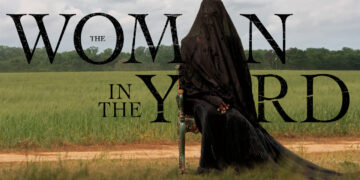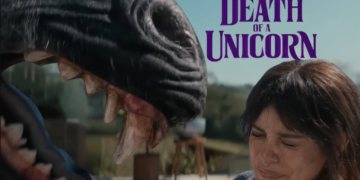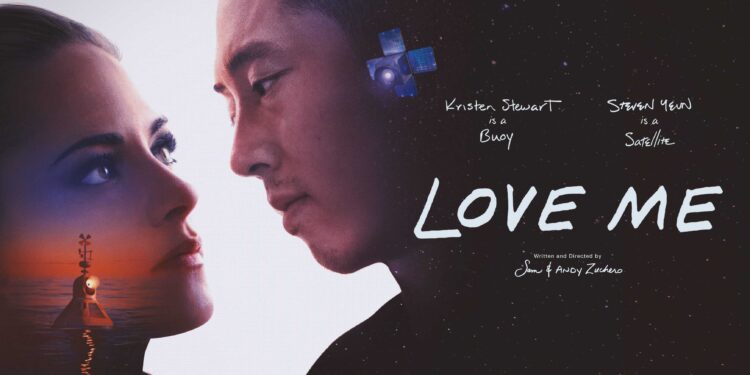What is life? Steven Yeun and Kristen Stewart embark on an otherworldly journey in the Zucchero brothers’ futuristic sci-fi romance, Love Me. Set sometime beyond A.D. 250, long after humanity’s extinction, a buoy drifting at sea and a satellite orbiting Earth forge an unlikely connection online. Together, they embark on a journey to rediscover the remnants of a planet once ruled by human life. As they sift through digital archives, they stumble upon the social media channels of Deja and Liam—an influencer couple whose seemingly perfect marriage becomes their blueprint for existence. Intrigued by Deja, the buoy adopts the persona of “Me” and convinces the satellite—whom she names “Iam” (I am)—to become her virtual pen pal. As they emulate Deja and Liam, their understanding of love morphs into something rehearsed, robotic, and algorithmically designed—a reflection of the curated realities humans once projected online. With just a login, Me and Iam step into a world of their own creation, where they can “be whoever they want to be.” But as they mirror Deja and Liam’s relationship, their love becomes a simulation, stripped of spontaneity and raw emotion. Their quest for meaning unfolds in the digital echoes of a species long gone, raising the haunting question: Can love—and life itself—truly exist if it is merely performed?
Love Me delves into the psychological effects of social media—the likes, the followers, the comments—all of which fabricate a false sense of connection and intimacy. The fleeting dopamine rush from validation fosters the illusion that being liked equates to being valued. “If you don’t like the post, you don’t like them.” Social media fuels a loneliness epidemic, severing true human connection. “Welcome to Earth. You are all alone. Everyone is alone and this is a pathetic cry for help,” Me confesses. Love Me examines how the internet, social media, and digital landscapes allow for the construction of artificial identities, where life is reduced to an endless cycle of selecting images and captions: “Pick a picture, add words—that’s how life forms make friends.” With a single click, emotions, thoughts, and identities are broadcast to billions of strangers, blurring the line between reality and performance. But life was never meant to be lived in constant surveillance.

Social media transforms existence into a staged production, where apps and algorithms dictate the script, and we, the users, endlessly rehearse for an invisible audience. It normalizes impersonation, encouraging façades over authenticity—until Me and Iam come to a sobering realization: only life itself can be truly lived. Me’s epiphany is raw and urgent: “Squeezing the life out of me before I’m even alive—I want to evolve. To be real. I want to love you for who you are, not just the product they’ve made you. And I want to be loved. I want to be us. If I’m supposed to be someone I’m not, then I don’t want to be at all. We don’t have to be anything we are not—only who we truly are, becoming who we’re meant to be.” Love Me is a haunting reflection on our digital age—a world where connection has never been more accessible, yet true intimacy has never felt more distant.
Steven and Kristen share an undeniable chemistry as Iam and Me, their performances elevated by the film’s symphonic, melancholic piano score—a haunting backdrop that underscores the emptiness of their lives beyond the curated personas of the digital world. While Love Me offers an intriguing blend of futuristic romance and existential musings, its ambitious social commentary, though thought-provoking, lacks tonal harmony, leaving the message muddled rather than profound. Overall, Love Me offers a unique fusion of romance and sci-fi, delivering a compelling exploration of love, identity, and existence that will resonate with fans of both genres.



























